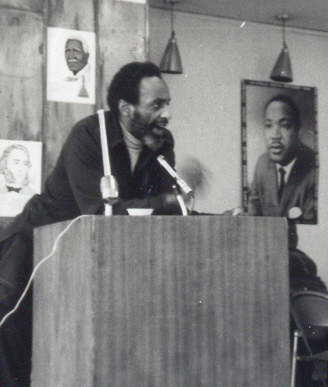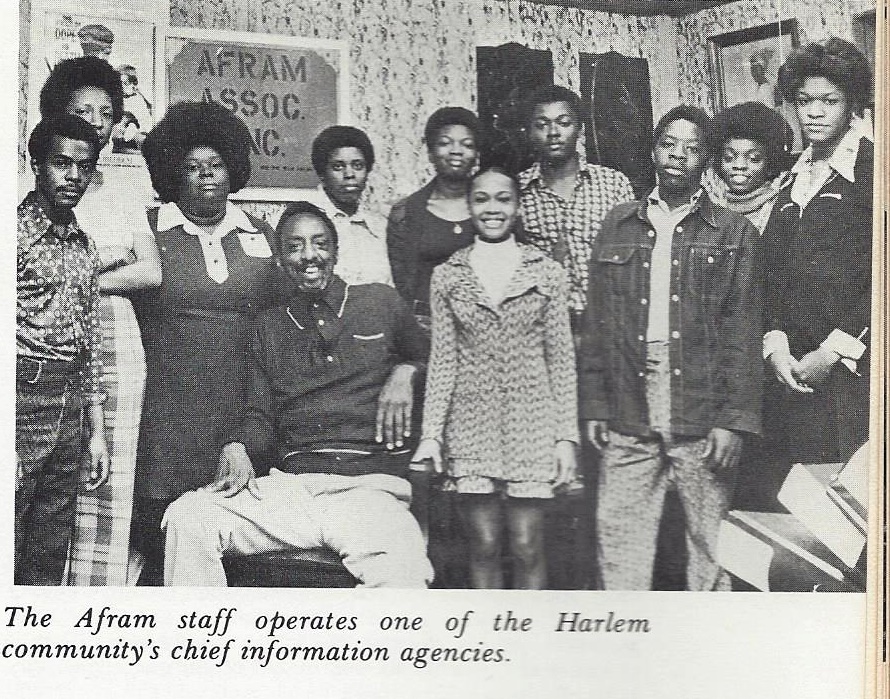Brother Preston Wilcox
 Preston Wilcox was born in Youngstown, Ohio, on December 27,1923 to Ida Mae Rousseau and John Wilcox. He was the second child and first son of five brothers and sisters. Growing up at 736 Harlem Street. Preston was destined to make his home in and commit much of his life’s work to Harlem, NY. Throughout his youth and early adult life, Preston was an athlete, playing basketball for his Rand High School team and later for the New York Gothams of the Negro League which existed before the National Basketball Association was formed. After high school, Preston enrolled at Morehouse College with plans to become a medical doctor. However, he was drafetd by the US Army and served in World War II. After his discharge he moved to Brooklyn, NY where his mother had relocated, and enrolled at the City College of New York. While there he earned a B.S. in Biology in 1949, and met Katherine Knight, who he married in 1951. They had three children Gwynne Alicia Wilcox Esq.,David Preston Wilcox, and Susn Elise Wilcox, Ed.D though later divorced. In 1974, Preston’s youngest daughter Liana Amani Yangson- Wilcox, was born to him and Marylyn Yangson.
Preston Wilcox was born in Youngstown, Ohio, on December 27,1923 to Ida Mae Rousseau and John Wilcox. He was the second child and first son of five brothers and sisters. Growing up at 736 Harlem Street. Preston was destined to make his home in and commit much of his life’s work to Harlem, NY. Throughout his youth and early adult life, Preston was an athlete, playing basketball for his Rand High School team and later for the New York Gothams of the Negro League which existed before the National Basketball Association was formed. After high school, Preston enrolled at Morehouse College with plans to become a medical doctor. However, he was drafetd by the US Army and served in World War II. After his discharge he moved to Brooklyn, NY where his mother had relocated, and enrolled at the City College of New York. While there he earned a B.S. in Biology in 1949, and met Katherine Knight, who he married in 1951. They had three children Gwynne Alicia Wilcox Esq.,David Preston Wilcox, and Susn Elise Wilcox, Ed.D though later divorced. In 1974, Preston’s youngest daughter Liana Amani Yangson- Wilcox, was born to him and Marylyn Yangson.
In 1956 Preston earned a Masters of Social Work at Colunmbia University and began teaching there. He also taught at a summer program created to expose Harlem youth to the college experience. Taking place at Princeton University, it was the first of its kind to be hosted by an Ivy League school. While teaching, Preston also worked with community groups and leaders toward helping improve educational opportunities for Black and Latino students and their families. He worked with the Freedom Schools in Mississippi. During New York City’s teacher strike in 1967, he worked with parent activists to run the Liberation School created to ensure their children’s education would not be disrupted. He was an advisor on the issue of community control of public schools, including for two of NYC’s most contentious battle: Ocean Hill-Brownville(Brooklyn) and I.S. 201 (Harlem). He also served on the advisory board for the creation of the Manhattan Country School and facilitated programming for the Encampment for Citizenship, both having the goal of providing ethnically diverse and authentic settings for learners. For the latter, he edited the cartoon-styled though candid book White Is, a complication of the youth’s reflections on stereotypical white behavior. In 1968, Preston left Columbia to do educational consulting, advising community groups, speaking throughout the country and overseas ( including Africa and Japan), presenting papers, and organizing national and international conferences, particularlyon issues of parent involvement and the nexus of culture and education of black students. He was active in the Black Power Movement, and in 1970 helped organize the first Black Power Conference. He appeared on Gil Noble’s program Like It is and was active with the National Association of Black Social workers. During a conference in Barbados, he was proud to have screened the ministries Roots for the first time in that country. With one of his closet colleagues, the late Alice Kornegay, he worked with East Harlem Triangle, a group providing housing, services, and resources to community residents. During this period Preston also created Afram Associates, Inc. a non-profit organization researching, archiving and sharing information about Black organizations, education, history, and resources, including an extensive collection on Malcolm X. Recently, the Schomburg Center for Research on Black Culture gathered many of Afram’s files to add to its own collection.

Over the next decade Preston contiuned to keep Afram alive and consult. He served on community board 5 for NYC’s Department of Education and on numerous otherboards. He taught at Lincoln University in Pennsylvania. As the years went on, his day-to-day activities slowed down a bit, but not his dedication to his life’s work nor his love of Harlem. He could be found in his office next door to the Apollo Theatre, traveling from one event to another, or hanging out at any one of his favorite haunts such as Showman’s Bar. Preston has been recognized by the Congressional Black Caucus and New York City Council, with many awards including the Whitney M. Young Jr. Equal Justice for Children Award ( Abyssinian Baptist Church) and the Living Legend Award (International African Arts Festival), and with an honorary degree from Lincoln University. More importantly, he is recognized in Harlem and among fellow community and educational activities as being a constant and deeply committed advocate for his people.
Click Here Preston Wilcox Papers – The Schomburg Center for Research in Black Culture
